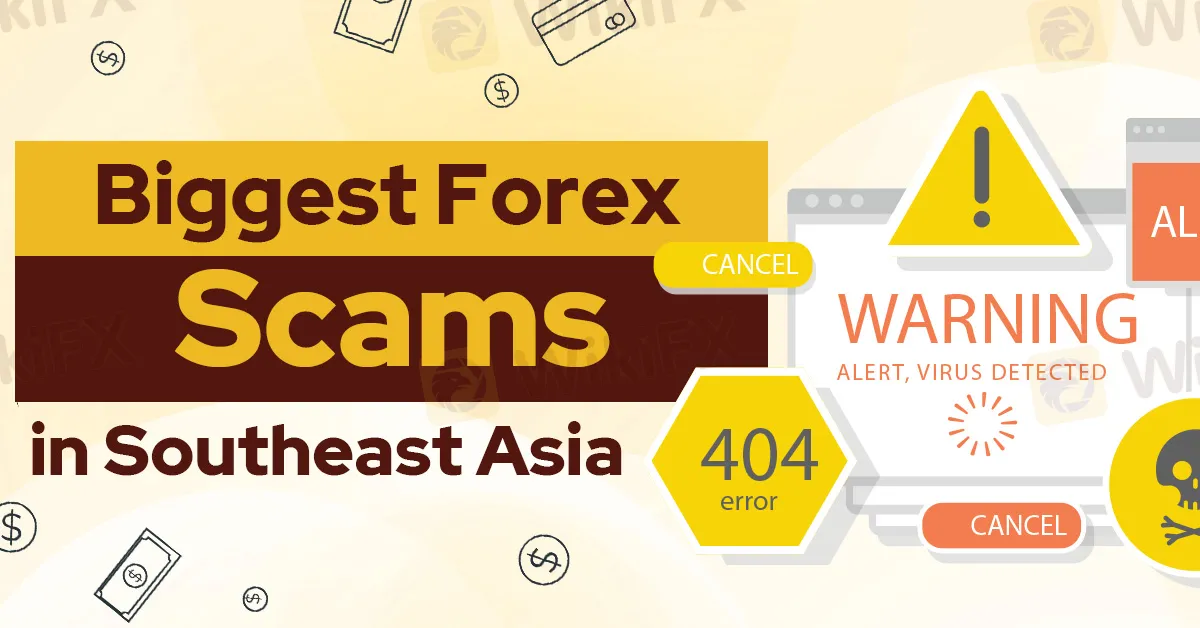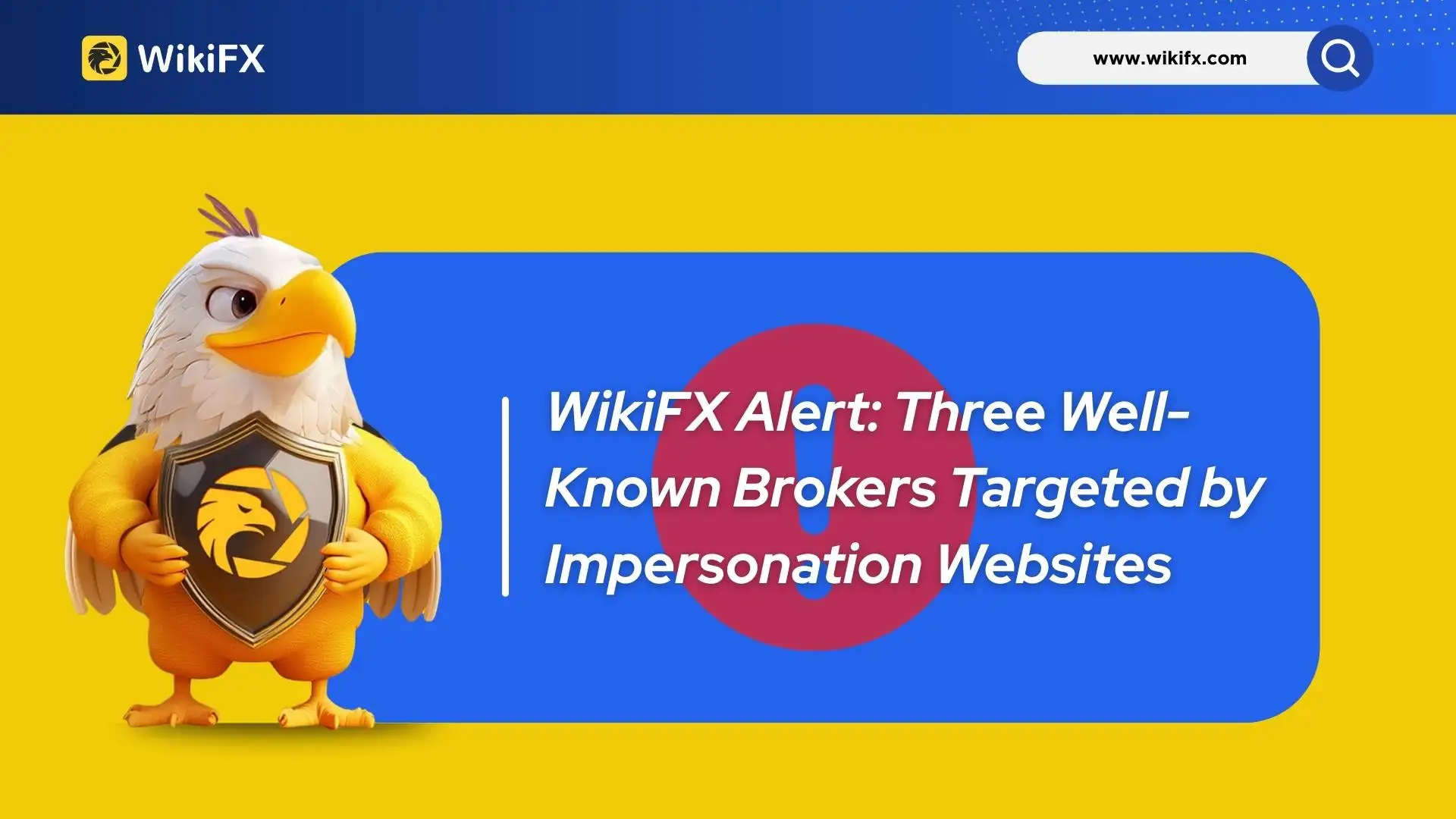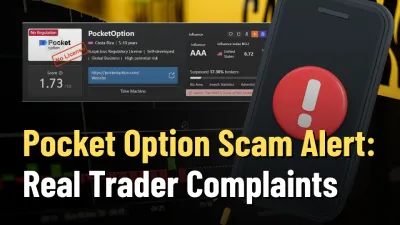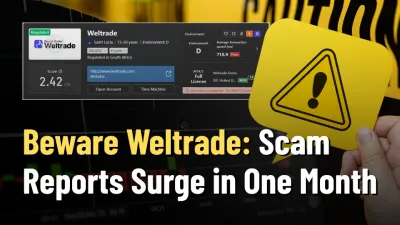Abstract:The pursuit of wealth has led to a complex tapestry of deceit and financial devastation in Southeast Asia's forex trading landscape, where fraudulent schemes, from Malaysia's infamous JJPTR Ponzi scheme to Thailand's multi-million dollar fraud, have cast a shadow over the region's investment terrain.

The pursuit of quick wealth has ensnared many in Southeast Asia, particularly in the realm of forex trading, where elaborate scams have wrought financial devastation. From Malaysia's infamous JJPTR Ponzi scheme to Thailand's multi-million dollar fraud, these instances of deception serve as cautionary tales in the region's investment landscape.

In 2017, Malaysia was shaken by the downfall of JJPTR, a forex trading company that amassed RM2.1 billion (US$515 million) via a Ponzi scheme. Promising unrealistic monthly returns of up to 10%, the company's collapse left countless investors destitute, exposing the fraudulent nature of its operations.

Thailand faced a similar fate in 2014 when the SEC unearthed a colossal forex scam that siphoned off THB10 billion (US$292 million) from investors. Operating through a network of companies, this scheme duped investors with lofty return promises while diverting funds for personal gain and engaging in illicit trading.

In 2019, FXCM Asia's abrupt closure in Singapore shocked investors, resulting in losses surpassing S$100 million (US$72 million) for over 1,000 investors. Investigations revealed fraudulent activities, including misappropriation of client funds and manipulative trading practices.

Indonesia encountered a deceitful trading figure in 2015 when Alfi Syahrin, posing as a forex guru, defrauded investors of Rp100 billion (US$7.2 million). With promises of guaranteed profits, Syahrin redirected funds for personal extravagance, leaving investors in financial ruin.
Scams within Southeast Asia's forex landscape exhibit consistent traits, irrespective of their regional differences. They consistently exploit vulnerabilities through certain recurrent elements. Firstly, these scams often rely on unrealistic promises of returns that exceed standard market expectations, preying on investors' desire for quick and substantial profits. Secondly, opacity and manipulation form core tactics, as scammers operate clandestinely, using emotional manipulation to sway investors. This involves coercing individuals into investments while deliberately withholding crucial financial information, creating an aura of exclusivity that veils their true intentions and practices.
WikiFX emerges as a crucial resource in navigating and averting the recurrent elements prevalent in Southeast Asia's forex scams. Through its comprehensive broker verification system, WikiFX serves as a protective shield for investors. By offering a detailed overview of brokers' credentials, including regulatory compliance and user-generated reviews, the platform enables users to discern legitimate brokers from potentially fraudulent ones. This verification process empowers investors to make informed decisions, avoiding scams that often entice with unrealistic promises. Additionally, WikiFX's user-reviewed legitimacy provides an essential layer of transparency, allowing users to gauge a broker's reliability based on real experiences. By leveraging WikiFX, investors gain access to critical insights that facilitate the avoidance of opaque, manipulative practices employed by scammers. The platform serves as a beacon of transparency, ensuring investors have the necessary tools to assess trading strategies, manage expectations, and seek expert advice more effectively, thereby fortifying their defences against deceitful forex schemes prevalent in the region.

Meanwhile, having a deep understanding of a firm's trading strategies forms a linchpin in evaluating legitimacy and potential risks associated with investments. This comprehension enables investors to scrutinize the coherence and feasibility of the strategies proposed. By delving into the intricacies of these methodologies, individuals can discern whether the practices align with standard industry norms or if they veer into suspicious territory. Understanding these strategies empowers investors to identify red flags, such as overly complex or unconventional approaches, prompting a cautious evaluation of the investment opportunity's legitimacy and associated risks.
Amidst the allure of guaranteed profits, a crucial aspect of safeguarding against forex scams lies in tempering expectations. Cautioning against exaggerated assurances of guaranteed returns, investors are reminded that legitimate trading inherently carries risks. Recognizing the distinction between achievable returns and overzealous promises becomes pivotal. By maintaining a realistic perspective, investors can steer clear of schemes that promise unrealistically high profits, a common tactic employed by fraudulent entities seeking to entice unsuspecting investors.
In conclusion, navigating the treacherous waters of Southeast Asia's forex scams requires a multi-faceted approach. Platforms like WikiFX stand as pillars of defence, offering comprehensive broker verification that empowers investors to differentiate between legitimate entities and potential scams. Meanwhile, understanding trading strategies becomes paramount to discern suspicious practices, while tempering expectations serves as a safeguard against exaggerated promises. By incorporating these measures, investors can fortify their defences against deceitful schemes prevalent in the region's financial landscape, striving for a safer and more informed investment journey.















